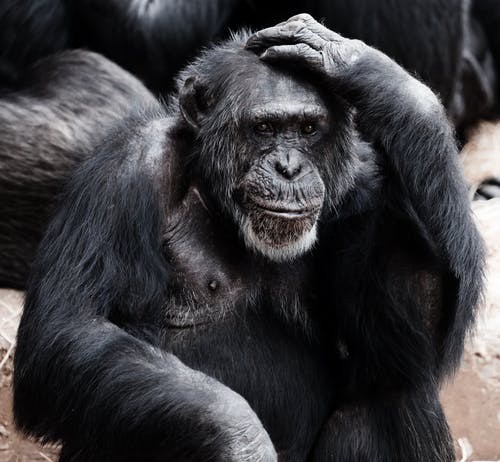
The novel coronavirus has traveled around the world claiming thousands of human lives, probably originating from bats and possibly infecting pangolins before transmitted to humans. Now, scientists are saying that the virus could also be a mortal threat to humans' closest living relatives- gorillas, chimpanzees, and other great apes.
The species that belong in this group are endangered. Humans may not share the same language or society with these creatures, but both share 98 percent of DNA with chimpanzees, as Live Science reported. Unfortunately, both also share the same susceptibility to the respiratory illness that is wreaking havoc around the world.
In a letter published in the journal Nature on Tuesday, conservation experts from the Great Ape Health Consortium said that the transmission of even mild human diseases and viruses to apes can lead to moderate-to-severe consequences. Viruses that cause mild symptoms in humans, have sickened and killed apes in many African countries, said Thomas Gillespie, a disease ecologist at Emory University in an interview.
Apes have become endangered primarily because of habitat loss and poaching, and as each day passes the virus is becoming a co-factor of the animals' endangerment.
Also Read: The Link Between Pangolin Viruses and Human Pandemic Remains Cloudy
A Call to Reduce Wildlife Tourism and Field Research
Gillepsie together with other experts calls out to countries all over the world with wild ape populations to suspend wildlife tourism and reduce field research.
Some countries like Rwanda and Gabon have already suspended tourism and implemented widespread border closures and flight cancellations to reduce international travel. Gillepsie is very much concerned that younger tourists might be enticed with cheaper flights and lower access to tourist spots to see great apes and are also more likely to be carriers of the virus.

The International Union for the Conservation of Nature "strongly" advised that no humans shall come within 10 meters or about 33 feet to the great apes of the wild. People who have been sick or who have been in close contact with sick people in the previous 7 days are not allowed to visit the great ape sites as recommended by the IUCN.
University of Minnesota's College of Veterinary Medicine, associate professor, Dominic Travis also emphasized that the letter is also directed to zoos and sanctuaries. Although not all of them have the resources to deal with this pandemic, the staff at those facilities have typically been prepared to cope with disease outbreaks and threats.
Travis, who studies wildlife epidemiology and veterinary public health said, that it is not only people who can experience a direct threat from the virus. There's a lot of evidence that suggests that great apes can also be infected and we need not more evidence before taking an action to prevent it from happening.
The experts wrote in the letter that people are strongly recommended to adhere to the International Union Conservation of Nature's book entitled "Best Practice Guidelines for Health Monitoring and Disease Control in Great Ape Populations."
The book's recommendations include wearing clean clothing and disinfecting footwear before going near the animals, and they also require wearing of face masks to anyone who comes within 10 meters of the animals.
Also Read: India's Biodiversity Home to 16 Exotic and Rare Animals
© 2026 ScienceTimes.com All rights reserved. Do not reproduce without permission. The window to the world of Science Times.











